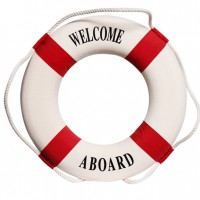Here’s something no boat owner or HSE professional ever wants to contemplate…Fullers pays $130,000 after collision with wharf
What Happened?
- Auckland ferry Kea collided with Victoria wharf at Devonport on 17 February 2015.
- At least 19 passengers were injured, ranging from cuts and bruises to a serious concussion.
- Bench seating on the main deck of the vessel was not secured the impact with the wharf caused the seating to topple forward landing on some passengers.
- Fullers Group had previously identified problems with the vessel’s digital control system,
- Fullers continued to operate the Kea and attempted to address the risks from the control system issues.
- Implemented procedures which included switching off the control system’s automatic mode and operating it manually.
- NB allowing masters to transfer control between stations while the vessel was moving, increased the risk of an incident if the manual transfer process failed.
- On the day of the incident, the transfer was unsuccessful and the master lost control of one of the vessel’s thrusters and it hit the wharf at a speed of approximately 13 km/h (7 knots).
What the Court Said:
- Fullers Group was fined $40,000 and ordered to pay reparations of $90,000 after passengers were injured
- Found guilty to a charge laid by Maritime NZ under the Health and Safety in Employment Act that it failed to take all practical steps to ensure no action or inaction by an employee harmed any other person.
- Maritime NZ Regional Compliance Manager, Northern, Neil Rowarth said, “Paying passengers and crew working on board should feel safe in the knowledge that procedures are in place to manage risks and a vessel is in the right condition to operate safely. This was clearly not the case in this instance…..This sentence should send a strong message to industry that risks must be properly managed,”
What can we learn from this from an HSE Perspective?
- Secure things: Whether it is a road vehicle, a piece of mobile machinery or vessel, always secure fixtures and loads so they can’t move in a collision.
- Commissioning new equipment/systems: Don’t sign it off until it works! She’ll be right is not good enough. Having an effective commissioning phase in the project plan is important.
- Human Interface: Creating procedures that rely on human actions is the last line of defence. If the mechanical/electrical system had been fixed this wouldn’t have happened.
- Staffing Levels/ Training/ Fail Safe Processes: Much like nurses always have to have a peer check when administering drugs, in this case, if the Captain and Fist Mate had both been on station the likelihood of this happening would have been greatly decreased
Have a safe and productive week and please contact your HSE professional before you plough your boat into a wharf!
SB
If you enjoyed this post, make sure you subscribe to my RSS feed!
